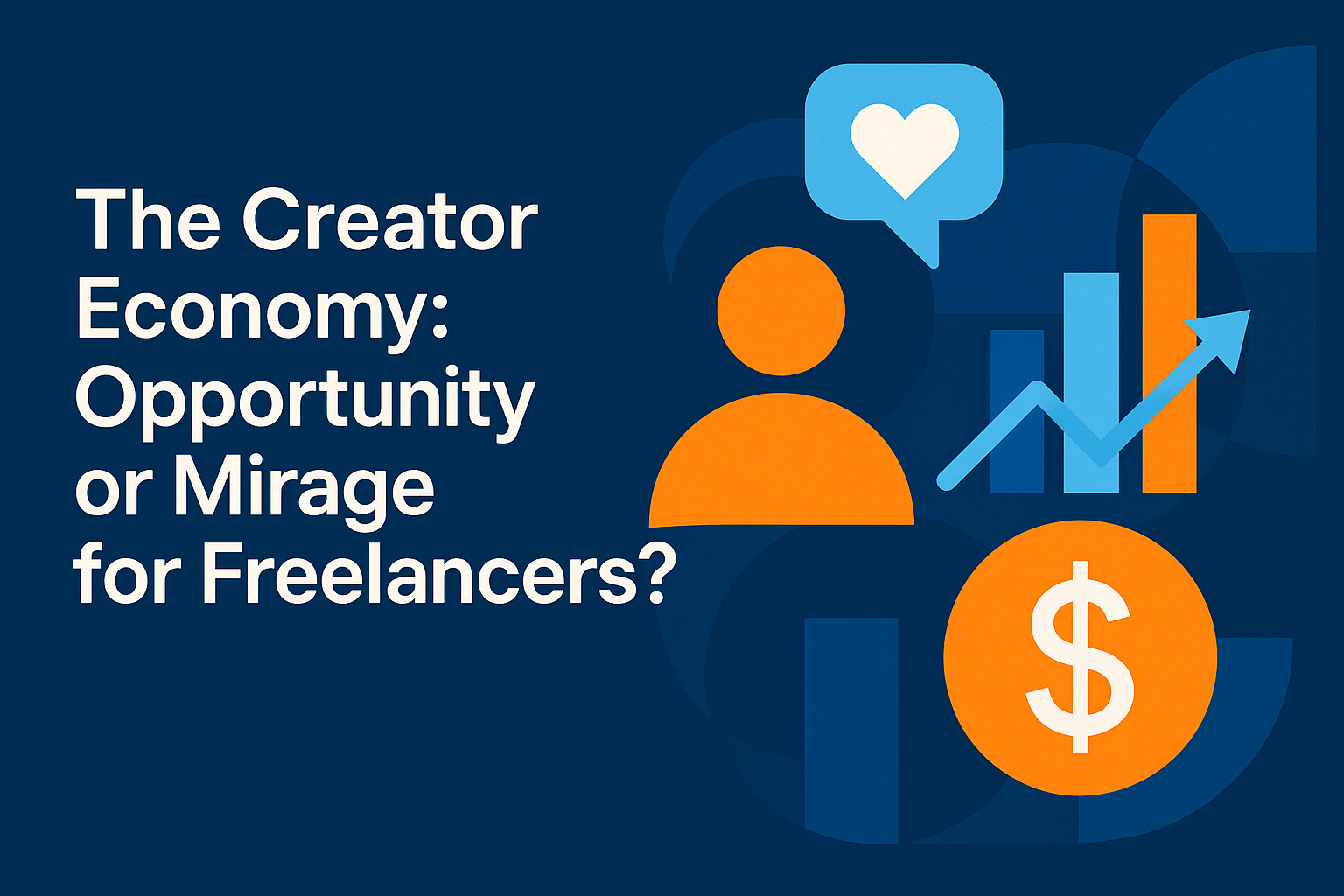
In Recent Years, the Term “creator economy” has established itself in the vocabulary of the media and entrepreneurs. Behind this concept, we find an attractive promise: to allow everyone to monetize their expertise, creativity or community through digital platforms. But what is it really like for freelancers, freelancers and auto-entrepreneurs ? Is it a real opportunity to develop your business or a mirage that only benefits a minority?
TEACreator Economy Refers to the ecosystem made up of platforms (YouTube, Substack, Patreon, Patreon, Patreon, Patreon, TikTok, TikTok, Twitch, OnlyFans, Gumroad, etc.), SaaS tools, and financial services that allow individuals to directly create, distribute and monetize their content, products or services.
In 2025, the global creator economy market is estimated at Over 250 billion dollars, and could reach 500 billion by 2030 according to Goldman Sachs.
For the self-employed, this dynamic opens several doors:
A freelance developer, designer or consultant can offer digital mini-tools (micro-SaaS), of Templates, or even online training. These products have the advantage of generating Recurring Revenue.
The creator economy highlights the concept of Fellowship. Freelancers can rely on LinkedIn, Discord, or Substack to develop a targeted audience and build a direct relationship with their potential customers.
Beyond traditional missions, a freelancer can multiply sources of income: premium subscriptions, sponsored content, SaaS partnerships, sales of digital products.
The creation of regular content (articles, videos, podcasts) reinforces the Personal Brand and naturally attracts customers.
Behind the enthusiasm, some obstacles deserve to be highlighted:
Millions of Creators launch every year. Differentiating yourself requires a Clear Strategy, time and often an initial investment.
Algorithm rules, commissions, and platform policy changes can undermine a business model based on a “rented” rather than “owned” audience.
Only a minority of creators make a living exclusively from their activity. The majority generates Additional Income, often irregular.
Regularly publishing quality content to maintain visibility can become a source of stress and mental overload.
The creator economy It's not a magic bullet. It can constitute a Strategic Lever For freelancers who want to:
On the other hand, relying solely on this model remains risky. Success is based on a Poise between traditional missions, content creation and digital products.
The creator economy is neither a mirage nor a guaranteed El Dorado. For freelancers, it represents above all a Complementary Opportunity To Their Activity, Provided They Approach It With Realism, Strategy and Adapted Tools.
->To go further, it can be useful to equip yourself with powerful digital tools to manage your cash flow, automate your business and build a solid community.

It is the set of economic activities generated by individuals who produce and monetize online content (videos, newsletters, training, etc.).

It allows freelancers to monetize their skills directly with their audience, without intermediaries.

Dependence on platforms, unstable incomes and strong competition in popular niches.

By diversifying its channels (customers, subscriptions, partnerships) and by managing its cash flow with a cockpit like Klark.